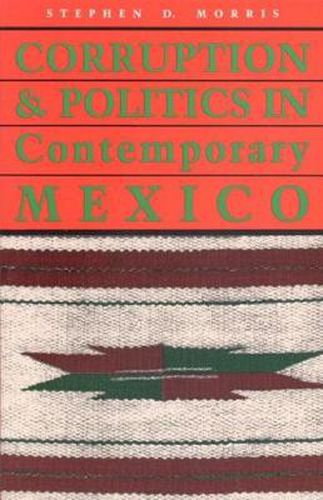Readings Newsletter
Become a Readings Member to make your shopping experience even easier.
Sign in or sign up for free!
You’re not far away from qualifying for FREE standard shipping within Australia
You’ve qualified for FREE standard shipping within Australia
The cart is loading…






This book addresses the causes, effects, and dynamics of political corruption in Mexico. Systematic analysis of corruption is critical to a better understanding of the politics of Mexico, and despite the many conceptual and methodological obstacles, the importance of the subject matter demands treatment. Morris’s work should therefore be seen not as definitive, but as an initial step in understanding a central dimension of Mexican politics. Corruption, as a topic of research, invites certain misunderstandings, as it is a broad concept conveying a variety of moral connotations. This inquiry into political corruption is not intended to depict the Mexican people or society as any less or more moral than others. The study draws on extensive content analysis of news reports from the Mexican press, a public opinion poll conducted in 1986, and personal interviews. The objective is not to expose scandals and wrongdoing by Mexican officials, name names, or point fingers: it is an academic endeavour. The author discusses scandals and gives examples of corruption for illustrative purposes, but his analysis is more theoretical than anecdotal. He questions whether, in fact, corruption has enhanced or diminished the stability of the Mexican government, and examines the reasons for the failure of many anti-corruption efforts.
$9.00 standard shipping within Australia
FREE standard shipping within Australia for orders over $100.00
Express & International shipping calculated at checkout
This book addresses the causes, effects, and dynamics of political corruption in Mexico. Systematic analysis of corruption is critical to a better understanding of the politics of Mexico, and despite the many conceptual and methodological obstacles, the importance of the subject matter demands treatment. Morris’s work should therefore be seen not as definitive, but as an initial step in understanding a central dimension of Mexican politics. Corruption, as a topic of research, invites certain misunderstandings, as it is a broad concept conveying a variety of moral connotations. This inquiry into political corruption is not intended to depict the Mexican people or society as any less or more moral than others. The study draws on extensive content analysis of news reports from the Mexican press, a public opinion poll conducted in 1986, and personal interviews. The objective is not to expose scandals and wrongdoing by Mexican officials, name names, or point fingers: it is an academic endeavour. The author discusses scandals and gives examples of corruption for illustrative purposes, but his analysis is more theoretical than anecdotal. He questions whether, in fact, corruption has enhanced or diminished the stability of the Mexican government, and examines the reasons for the failure of many anti-corruption efforts.